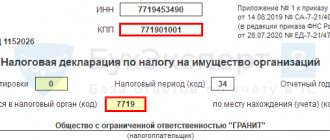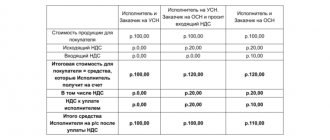T. N. Milyutina author of the article, Deputy General Director for Audit of ALT-AUDIT LLC
Lately, organizations often have questions: do situations such as an employee being on a long business trip, leasing equipment with a crew, or a mobile construction site lead to the formation of a separate unit. These issues, as well as the peculiarities of filing tax returns and paying taxes by separate divisions, will be discussed in this article.
According to paragraph 2 of Art. 11 of the Tax Code of the Russian Federation, a separate division of an organization for the purpose of calculating taxes and fees is understood to be any territorially separate division from it, at the location of which stationary workplaces are equipped.
A division is recognized as separate regardless of whether its creation is reflected or not reflected in other organizational and administrative documents, and regardless of the powers vested in it. In this case, a workplace is considered stationary if it is created for a period of more than one month.
From the definition given in the Tax Code of the Russian Federation it is clear that a division is considered separate if:
- it is territorially isolated from the organization;
- it has stationary workplaces.
The legislation on taxes and fees does not contain a definition of “workplace”. In accordance with paragraph 1 of Art. 11 of the Tax Code of the Russian Federation, institutions, concepts and terms of civil, family and other branches of legislation of the Russian Federation, used in the Tax Code of the Russian Federation, are applied in the meaning in which they are used in these branches of legislation, unless otherwise provided by the Tax Code of the Russian Federation.
Thus, to determine the content of the term “workplace” it is necessary to be guided by the provisions set out in Art. 209 Labor Code of the Russian Federation. According to this standard, a workplace is a place where an employee must be or where he needs to arrive in connection with his work and which is directly or indirectly under the control of the employer.
Based on the above, a number of workplace characteristics can be identified:
- existence of an employment contract between the employee and the employer;
- workplace equipment;
- stationary workplace;
- direct or indirect control of the employer.
However, almost all of these signs are not as simple as they seem at first glance, and their interpretation becomes the cause of numerous disputes between taxpayers and inspectors. Therefore, let's look at each of them in more detail.
Territorial isolation
The concept of “territorial isolation of a unit” is not defined by law, and in accordance with legal and business practice, this means the location of a unit outside the location of the legal entity.
According to paragraph 2 of Art. 54 of the Civil Code of the Russian Federation, the location of a legal entity is determined by the place of its state registration. Similar rules are contained in the Federal Laws on Joint Stock Companies and Limited Liability Companies.
Judicial practice on this matter indicates: “any separate division, the location of which is different from the location of the organization specified in its constituent documents, is a separate division” (Resolution of the Federal Antimonopoly Service of the North-Western Territory of June 21, 2004 N A56-34578/03).
In some court decisions you can find a definition with more stringent conditions. Thus, according to representatives of the Federal Antimonopoly Service of the North-Western and North Caucasus districts, “territorial isolation means the location of a structural unit of an organization geographically separate from the parent organization and outside the administrative-territorial unit of its registration, controlled by one or another tax authority” (see Resolutions FAS North-Western District dated November 2, 2007 in case No. A26-11293/2005, North Caucasus District dated June 20, 2007 N F08-3590/2007-1449A in case No. A63-9693/2006-C4).
For tax purposes, territorial isolation will be recognized if there is any discrepancy between the organization’s address indicated in the constituent documents and in the application submitted to the tax authority and the address of the actual location of the separate division. This is precisely the approach that tax authorities use when identifying signs of a separate division (Letters of the Ministry of Finance of Russia dated January 12, 2010 N 03-02-07/1-6 and dated December 21, 2009 N 03-02-07/1-550, Federal Tax Service of Russia for the city of Moscow dated March 19, 2012 N 17-26/23423).
This means that a division is territorially separate from the parent organization if it is located in the territory where tax accounting and tax control is carried out by a tax authority other than the one with which the organization is registered as a taxpayer.
Previously, in the explanations of financial authorities, it was proposed to recognize a unit as territorially separate if it is located:
- at a different address not indicated in the constituent documents as the location of the taxpayer himself (Letter of the Ministry of Finance of Russia dated July 7, 2006 N 03-01-10/3-149, Resolution of the Thirteenth Arbitration Court of Appeal dated April 7, 2005 in case N A56-48067/2004 );
- at a different postal address (Letters of the Ministry of Finance of Russia dated December 22, 2004 N 03-03-01-04/1/184, dated November 29, 2004 N 03-03-01-02/45, dated November 9, 2004 N 03-03-01 -04/1/103, dated October 21, 2004 N 03-03-01-04/1-78).
Due to the fact that the location of the organization itself may also differ from the address indicated in its constituent documents, tax authorities and courts increasingly prefer to recognize as separate divisions that have a postal address different from the main one. Accordingly, divisions of an organization located on its territory and having the same postal address, due to the lack of territorial isolation, cannot be considered in the sense of the Tax Code of the Russian Federation as separate (Resolutions of the Federal Antimonopoly Service of the East Siberian District dated September 6, 2006 N A74-1273/06-F02 -4571/06-С1 in case No. A74-1273/06, Moscow District dated 08.21.2007, 08.28.2007 N KA-A40/8267-07 in case No. A40-73186/06-99-353, Volga District dated 06.09 .2006 in case N A65-5878/2005-SA1-23, Ninth Arbitration Court of Appeal dated 04/27/2007, 05/07/2007 N 09AP-4826/2007-AK in case N A40-73186/06-99-353).
Thus, a division that has a different postal address compared to the location of the main organization should be considered territorially separate. For the purposes of accounting and tax control, special attention should be paid to separate divisions of the organization that are located outside the administrative-territorial unit of registration of the main organization and, therefore, controlled by another tax authority. The organization has the obligation to register them with the tax authority (according to the rules of Article 83 and Article 84 of the Tax Code of the Russian Federation).
If you don't report the opening
In addition to registration, the parent organization is obliged to notify the territorial tax service office about the opening of a separate division. This must be done in any case, regardless of whether the activity is carried out through the OP or not. Violation of deadlines and failure to comply with the rule on mandatory notification entails penalties.
Here is a table of all possible fines for failure to report discovery. What penalty will be imposed on the parent company depends on the decision of the inspectors of the Federal Tax Service.
| Amount of fine | Norm | Base |
| 10,000.00 rubles | Clause 1 Art. 116 Tax Code of the Russian Federation | Violation of the deadline for filing an application for registration with the Federal Tax Inspectorate |
| 10% of income received during the entire period of activity of the OP, but not less than 40,000.00 rubles | Clause 2 Art. 116 Tax Code of the Russian Federation | Conducting activities by an organization or individual entrepreneur without registration with the Federal Tax Service |
| 5000.00 rubles | Clause 1 Art. 129.1 Tax Code of the Russian Federation | Late reporting of mandatory information to the Federal Tax Service |
| 200 rubles | Clause 1 Art. 126 Tax Code of the Russian Federation | Failure to submit required documents to the Federal Tax Service within the prescribed period |
For failure to provide information about the opening of an OP, a fine is imposed under clause 1 of Art. 126 of the Tax Code of the Russian Federation in the amount of 200 rubles. But there are cases when controllers took a different position and determined the maximum fine in the amount of 10% of revenues lost to the regional budget. The logic is simple: a branch has opened, activities are carried out in a specific region, but taxes do not go to the regional budget, since the OP was not registered with the territorial department of the Federal Tax Inspectorate.
Possible liability options
If it turns out that the organization is in violation of paragraphs. 3 p. 2 art. 23 of the Tax Code of the Russian Federation within the prescribed period did not report to the tax authority about all separate divisions from the date of their creation, then this circumstance will most likely serve as the basis for the inspection officials of the tax authority to hold her accountable under clause 2 of Art. 116 Tax Code of the Russian Federation .
According to paragraph 2 of Art. 116 of the Tax Code of the Russian Federation, the conduct of activities by an organization or individual entrepreneur without registration with the tax authority entails a fine in the amount of 10% of the income received during the specified time as a result of such activity, but not less than 40 thousand rubles. However, the Ministry of Finance has a different position.
The department explains: responsibility for failure to inform the inspectorate about the creation of a separate unit should be established in accordance with paragraph 1 of Art. 126 of the Tax Code of the Russian Federation ( Letter of the Ministry of Finance of Russia dated April 17, 2013 No. 03 ‑02 ‑07/1/12946 ). This norm establishes liability for the taxpayer’s failure to submit documents and (or) other information provided for by the Tax Code of the Russian Federation to the tax authorities within the prescribed period.
The Federal Tax Service is of a similar opinion ( Letter No. SA-4-14/3404 dated February 27, 2014 ), indicating: for failure to provide information about the creation of a separate division, the organization is subject to liability under clause 1 of Art. 126 of the Tax Code of the Russian Federation , that is, in the form of a fine of 200 rubles. Responsibility under clause 2 of Art. 116 of the Tax Code of the Russian Federation occurs if the activity is carried out without registration of the taxpayer himself .
Due to the fact that in practice controllers often apply sanctions to taxpayers in accordance with paragraph 2 of Art. 116 of the Tax Code of the Russian Federation , tax disputes arise, which most often develop into litigation.
The arbitrators, recognizing the position of the tax authority as unlawful, indicate: the provisions of Art. 23 , 83 , 84 of the Tax Code of the Russian Federation provide for informing the tax authority only about the creation of a separate division, and not about the actions of the taxpayer to register a separate division for tax purposes. Failure to notify about the creation of a separate unit under the disposition of Art. 116 of the Tax Code of the Russian Federation is not covered, and this violation constitutes a tax offense under Art. 126 of the Tax Code of the Russian Federation ( Resolution of the AS UO dated December 28, 2015 No. F09-10484/15 in case No. A60-4800/2015 ).
You can limit yourself to a fine of 200 rubles.
The Letter of the Federal Tax Service of Russia dated February 27, 2014 No. SA-4-14/3404 reflected a position favorable to taxpayers, from which it followed that, in the opinion of the tax authorities, for failure to provide information about the creation of a separate division, the organization is subject to liability only under clause 1 of Art. . 126 of the Tax Code of the Russian Federation, that is, in the form of a fine of 200 rubles, which, of course, is much less than the sanction provided for in paragraph 1 of Art. 116 of the Tax Code of the Russian Federation.
Another note from the tax authorities in this letter is also important: the taxpayer is subject to liability under clause 2 of Art. 116 of the Tax Code of the Russian Federation, if it conducts its activities without registering the taxpayer himself (in other words, not a separate division) with the tax authority.
The Ministry of Finance expressed a similar position in Letter No. 03-02-07/1/12946 dated 04/17/2013.
In the Resolution of the AS UO dated December 28, 2015 No. F09-10484/15 on case No. A60-4800/2015, it is noted that the provisions of Art. 23, 83 and 84 of the Tax Code of the Russian Federation provide for informing the tax authority only about the creation of a separate division, and not about the actions of the taxpayer to register a separate division for tax purposes. Failure to notify about the creation of a separate unit under the disposition of Art. 116 of the Tax Code of the Russian Federation is not covered, and this violation constitutes a tax offense under Art. 126 of the Tax Code of the Russian Federation (see also Resolution of the AS UO dated October 19, 2015 No. F09-7309/15 in case No. A76-2261/2015[3]).
Let us note that in the Resolution of the Arbitration Court of the Moscow Region dated October 30, 2014 No. F05-11191/14 in case No. A40-130227/2013, the judges, disagreeing with the application in this case of liability under paragraph 2 of Art. 116 of the Tax Code of the Russian Federation, considered that the taxpayer should be fined under paragraph 1 of Art. 129.1 of the Tax Code of the Russian Federation, that is, for unlawful failure (untimely communication) by a person of information that, in accordance with the Tax Code of the Russian Federation, this person must report to the tax authority - in the amount of 5 thousand rubles.
But there is a risk of much greater damage.
However, in practice, territorial tax authorities, obviously concerned with replenishing, first of all, the local budget, often classify this violation under paragraph 2 of Art. 116 of the Tax Code of the Russian Federation. Moreover, the courts have often supported them in this.
Thus, the Resolution of the AS ZSO dated January 27, 2017 No. F04-5897/2016 in case No. A70-2645/2016 indicates that the objective side of the offense provided for in paragraph 1 of Art. 126 of the Tax Code of the Russian Federation, is characterized by the taxpayer’s failure to fulfill the statutory obligation to submit to the tax authority the documents necessary for tax control, while the taxpayer is held accountable precisely for conducting activities without registering with the tax authority at the location of the separate divisions.
The court agreed with the tax authorities and determined that in this case, paragraph 2 of Art. 116 of the Tax Code of the Russian Federation. From which, in fact, it follows that for failure to notify about the creation of a separate division, only this norm can be applied, because a separate division is created for the purpose of conducting activities through it.
It was in accordance with this logic that similar decisions were made in a number of other cases [4] (see, for example, the Resolution of the AS ZSO dated May 10, 2017 in case No. A70-6845/2016). One example is the Resolution of the Supreme Court of the Russian Federation of December 12, 2016 No. F03-5024/2016 in case No. A04-12175/2015.
The tax inspectorate established that the organization actually created two separate divisions outside its location, carried out activities through them, but did not register for taxation at their location, because it did not consider that it had separate divisions.
The controllers brought the organization to justice under paragraph 2 of Art. 116 of the Tax Code of the Russian Federation, with which the judges agreed. They confirmed that separate units had been created.
The arbitration court also stated that the presence of signs of an offense under paragraph 1 of Art. 126 of the Tax Code of the Russian Federation (for failure to provide information (notices) on the creation of separate divisions), does not indicate the absence of signs of another offense imputed to the taxpayer - conducting activities by an organization or individual entrepreneur without registering with the tax authority on the grounds provided for by the Tax Code (clause 2 Article 116 of the Tax Code of the Russian Federation).
Availability of an employment contract
Since the workplace in paragraph 2 of Art. 11 of the Tax Code of the Russian Federation is applied as a category of labor law, the conclusion of a civil contract with an individual, for example a work contract, excludes the possibility of recognizing his place of work as a workplace for tax purposes (Resolution of the Federal Antimonopoly Service of the North Caucasus Region dated December 13, 2005 N F08-5920/05-2345A) .
Thus, the creation of a workplace is evidenced by the conclusion of employment contracts, the signing by the manager of orders for appointment to a position, the drawing up of a staffing table, etc.
In practice, labor relations with employees are often formalized by contract agreements. If a dispute arises related to the qualification of an agreement, one should proceed from its content, and not the name of the agreement. Therefore, if it is established that an employment relationship actually exists between the parties to the contract, the existence of a workplace should be recognized.
The courts recognize the fact of creation of a job due to the fact that there is actual admission to work. For example, in the case when an organization sets up workplaces outside its location, but invites to these places not its own employees, but employees hired under a personnel supply agreement with a third-party organization. As a rule, under such an agreement, employees are in an employment relationship with the providing organization, and the organization receiving the personnel undertakes to provide such employees with jobs and pay a certain amount to the providing organization. And the courts recognize such places as workplaces for tax purposes, based on the fact that the basis for the emergence of labor relations is the actual admission to work with the knowledge or on behalf of the employer or his representative, regardless of whether the employment contract was properly drawn up (Resolution of the Federal Antimonopoly Service of the North-Western Territory dated 04/14/2004 N A66-6278-03).
Tax authorities quite often recognize the places of work of employees who live and work separately from the parent organization (in other cities) as separate divisions. In this case, the tax authorities directly indicate that the conclusion of civil, rather than employment, contracts with them was made in order to avoid recognition of the places of work of such employees as separate divisions, which may entail the collection of sanctions under Art. 116 of the Tax Code of the Russian Federation.
The conclusion between the parties of a civil law rather than an employment contract (for example, a work contract) allows the organization to claim that the job was not created. The tax authorities will be forced to additionally prove in court that an employment relationship actually took place between the parties to the contract, and if a dispute arises related to the qualification of the contract, one should proceed from its content, not its name. Tax authorities are not vested with the right to independently reclassify this type of agreement from a civil law agreement to a labor agreement.
Thus, if a company decides to conclude civil contracts with individuals hired to perform work, then it should pay serious attention to the compliance of the wording of the concluded contracts with the norms of the Civil Code of the Russian Federation, as well as the absence in such contracts of features inherent exclusively to employment contracts.
In our opinion, the relationship between an organization and an individual involved in the systematic performance of certain functions over a long period, not depending on the specific (stipulated by contract) result accepted by the organization (customer), should be considered as an employment relationship (in this case, the result is understood identifiable result of actions carried out by an individual during the performance of his obligations under the contract). In this case, we proceed not so much from the possible form of the concluded contract, but from the actual relationship between the parties (performance of a labor function by the employee and payment by the employer of the employee’s labor in accordance).
Workplace equipment
A workplace should be considered equipped if it is functionally adapted to carry out the type of activity for which it is created and suitable for an employee to be in this place.
The equipment of the workplace can be confirmed, incl. documents on financial responsibility containing indications of specific property entrusted to the employee. Property necessary for work can be transferred under the employee’s report and according to an inventory report.
If special requirements are imposed on the equipment of workplaces, without which compliance with activities is impossible (prohibited), in the absence of documents established by law, the presence of equipped stationary workplaces does not in itself lead to the formation of a separate division of the organization.
At the same time, some courts continue to insist on the following: the equipment of stationary workplaces in a separate unit means not only the creation of all the conditions necessary for the performance of labor duties, but also the very performance of such (labor) duties (Resolution of the Federal Antimonopoly Service of the North Caucasus District dated 20.06. 2007 N F08-3590/2007-1449A in case N A63-9693/2006-C4, Ninth Arbitration Court of Appeal dated 10/08/2007 N 09AP-10255/07-AK in case N A40-10267/07-141-57).
Signs of a separate unit
OP meets two main characteristics:
- There are stationary workplaces on its territory. They will be used for at least one month.
- The structure is located at a territorial distance from the main office.
- The division must be created by the company itself.
IMPORTANT! A workplace, according to Article 209 of the Labor Code, is understood as a place where an employee comes to perform his official functions. The workplace must be controlled by the employer. Working from home does not meet these standards. An employee's apartment cannot be considered a workplace. The work of a cleaner hired to clean a client’s office does not fall under these criteria. Such a “division” was not opened by the head office. Premises for work were not rented or purchased. Therefore, in this situation there are no signs of a separate unit. The OP also does not include payment terminals and ATMs.
The characteristics under consideration are determined based on the following factors:
- conditions specified in the contract;
- relations between employees and the organization.
How is property tax paid for organizations if there are separate divisions ?
Territorial isolation means a situation in which the addresses of the head office and its divisions are different.
Stationary workplace
Workplace in accordance with clause 2 of Art. 11 of the Tax Code of the Russian Federation is considered permanent if it is created for a period of more than one month.
Recognition of a workplace as stationary does not depend on the frequency of visits by the employee and the time spent at it.
The form of organization of work (rotation work or business trip) and the period of stay of a specific employee at a stationary workplace created by the organization have no legal significance. This, with reference to judicial practice, is indicated in Letters of the Ministry of Finance of Russia dated November 13, 2015 N 03-02-07/1/65879 and dated May 24, 2013 N 03-02-07/1/18634, dated October 12, 2012 N 03- 02-07/1-250.
Thus, the fact that an organization is present with its personnel and material and technical means in a separate territory for a month is a sufficient sign of stationarity, regardless of the actual duration (continuity) of the direct implementation of production activities.
What is a separate division?
The definition of this concept and its main features are contained in Article 55 of the Civil Code. According to this rule, a separate division (hereinafter referred to as OP) is a representative office of an enterprise that is located outside its location, which represents and protects the interests of a legal entity. Representative offices are not legal entities, but they are endowed with the property of the legal entity that created them and act on the basis of provisions approved by it. The heads of the OP are appointed by a legal entity, and they act on the basis of a power of attorney.
Article 11 of the Tax Code states that an OP is any division territorially isolated from the main location in which stationary workplaces are equipped. Only a workplace that is created for a period of more than 1 month is considered stationary. The recognition of such an EP object itself is carried out regardless of whether its creation was reflected in the constituent and organizational documents, and on the powers with which it is vested.
The creation of an OP is regulated by Federal Law No. 14-FZ dated 02/08/1998. This rule states that it can be created by approving a decision on this through a vote of the LLC participants. For the decision to take effect, at least 2/3 of the participants must vote “for”. A decision is also made to close it.
Employer control
A mandatory feature of a workplace is control (direct or indirect) over it by the employer. Let's try to figure out what this means. It seems that this should be understood as the employer’s right:
- legally enter the premises in which the workplace is equipped; equip this place in accordance with its functional purpose (in compliance with labor protection rules);
- directly exercise control over the activities of the employee, for which he must be in an employment relationship with the latter, formalized in the manner prescribed by law.
When considering disputes about the presence (absence) of a separate division, arbitration courts, first of all, pay attention to this point. For example, if an organization provides services on the territory of a customer who provides all conditions for the work of the organization’s seconded employees, then in this case a separate division of the organization is not formed. Indeed, in such a situation, stationary workplaces are under the control of the customer, but the organization itself does not create them (Resolution of the AS of the West Siberian District dated June 11, 2015 N F04-20325/2015).
Thus, taking into account the above features, the following comprehensive definition of the concept of a stationary workplace can be applied for tax purposes.
A stationary workplace is a place created for a period of more than one month, where an employee must stay or where he needs to arrive in connection with his work, and which is directly or indirectly under the control of the employer.
The absence of any sign of a separate unit listed in paragraph 2 of Art. 11 of the Tax Code of the Russian Federation, does not lead to the creation of a separate division by the organization (Appendix to the Letter of the Federal Tax Service of Russia dated December 29, 2006 N ШТ-6-09/ [email protected] ).
Having understood the main signs of the emergence of a separate unit, we will apply them to practical situations.
Situation 1: Long business trip
In order to provide audit services, the contractor sends its employees on a long business trip (more than 1 month) to another city. The contract for the provision of audit services provides for an audit to be carried out at the customer’s office. According to the terms of the contract, the contractor during the inspection is subject to the internal labor regulations and working hours of the customer. The customer undertakes to provide the contractor’s representatives with conditions for timely and high-quality audit.
In this case, all conditions for the work of seconded employees are provided not by the contractor, but by the customer. Consequently, it is the customer who controls these jobs. And since the contractor himself does not create stationary jobs at the place of business trip, he does not have a separate division there.
So that in such a situation the contractor does not have disagreements with the tax authorities, it is advisable to indicate in the contract with the customer that it is he who is entrusted with the responsibilities for creating all the conditions necessary for the performance of work by the contractor’s employees.
Arbitration courts confirm that if there is such a condition in the contract, the contractor does not form a separate unit at the place of business trip (Resolutions of the Federal Antimonopoly Service of Moscow dated December 20, 2010 N KA-A41/15744-10, dated March 2, 2009 N KA-A40/817-09 and Northwestern dated February 15, 2010 in case No. A05-9705/2009 districts).
However, it must be taken into account that regulatory authorities also express a different opinion on this issue. Thus, the Russian Ministry of Finance believes that the actual place of work is the place where the employee performs most of his work duties. And if for a long time an employee performs a significant part of his functions outside his place of permanent work, for example abroad, then a business trip cannot be considered a business trip (Letter of the Ministry of Finance of Russia dated April 28, 2010 N 03-03-06/1/304).
In addition, the sending organization may be faced with the need to register its separate unit if at the place of business trip it has equipped stationary workplaces for its posted workers (Letter of the Ministry of Finance of Russia dated April 10, 2009 N 03-02-07/1-176).
Situation 2: Providing rental equipment with a crew
Under a rental agreement for equipment with a crew, the lessor organization provides the lessee with construction equipment for a fee for temporary possession and use and provides its own services for the management and technical operation of the provided equipment.
Based on Art. 635 of the Civil Code of the Russian Federation, crew members are employees of the lessor. They are subject to the lessor's instructions regarding the management and technical operation, and the lessee's instructions regarding the commercial operation of the vehicle.
In this situation, in our opinion, there is no such sign of a separate unit as the creation of stationary workplaces due to the fact that the equipment itself cannot be a stationary workplace.
A similar opinion is expressed in the Resolution of the Arbitration Court of the North-Western District dated September 16, 2015 N F07-7313/2015 in case N A05-9557/2014. The judges, guided by the concept of a workplace, came to the conclusion that dump trucks could not be a stationary workplace.
When considering disputes regarding the obligation to register a separate unit, the arbitrators indicate the need for documentary evidence of the creation of stationary jobs. Thus, the Arbitration Court of the North-Western District, in Resolution No. F07-7313/2015 dated September 16, 2015 in case No. A05-9557/2014, refuted the tax authority’s argument that the presence of the Company’s employees at the construction site for a long period of time already indicates creation of stationary jobs outside the location of the company. According to the judges, the mere conclusion of a subcontract agreement and sending employees on a business trip for a period of more than a month does not indicate the creation of a separate division by the company, since sending employees on a business trip without creating stationary jobs does not lead to the formation of a separate division. The main reason for rejecting the tax authority’s argument was the tax authority’s failure to prove the creation of stationary jobs by the company. Similar conclusions were made in the Resolutions of the Arbitration Court of the North-Western District dated June 17, 2015 N F07-3858/2015 in case No. A05-7419/2014 and dated May 27, 2015 N F07-2939/2015 in case N A05-11564/2014
Situation 3: Mobile construction site
The organization carries out construction and installation work on the gas pipeline. The territory where the gas pipeline is located belongs to different constituent entities of the Russian Federation and is under the jurisdiction of different Federal Tax Service Inspectors. The construction site is constantly moving as work progresses.
Since the construction site is constantly moving, the organization, in our opinion, does not create stationary jobs. And, accordingly, there are no grounds for recognizing the place where such work is carried out as a separate division of the organization. A similar opinion was expressed by the Russian Ministry of Finance in its Letter dated 08/08/2006 No. 03-02-07/1-212. Arbitration practice confirms this opinion. Thus, the Arbitration Court of the North-Western District in Resolution No. F07-2270/2016 dated 03/02/2016 in case No. A42-8726/2014 came to the conclusion that the Company did not create stationary jobs, since the controversial work was of a field, traveling nature , it is not possible to establish whether an employee is assigned to a particular place of work under these circumstances as a stationary workplace.
If the construction site does not move for more than one month, then the organization has the obligation to register a separate division, since jobs are created that have signs of stationarity.
In accordance with paragraph 9 of Art. 83 of the Tax Code of the Russian Federation, if an organization has difficulty determining the place of registration of a separate division, the decision is made by the tax authority on the basis of the data presented.
In addition, to resolve the issue of the presence or absence of signs of a separate division of an organization at the place of its activities, tax authorities take into account the nature of the relationship between the organization and its employees and other actual circumstances of the organization’s activities outside its location. This position was expressed by the Russian Ministry of Finance in Letter dated March 17, 2010 No. 03-02-07/1-114.
Therefore, in our opinion, if the obligation to register a separate division arises, the organization should provide the tax authority with information about the location of the work, taking into account its long-term nature. When moving a construction site, there is no need to deregister with one tax authority and register with another.
Registration
The answer to the question from what moment a separate division of an organization should be considered created is important for the correct fulfillment of the organization’s responsibilities as provided for in the Tax Code of the Russian Federation:
notify in writing the tax authority at the location of the organization about all separate divisions created on the territory of the Russian Federation (clause 3, clause 2, article 23 of the Tax Code of the Russian Federation).
According to some courts, a separate division can be considered created from the moment when a stationary workplace is equipped (Resolution of the Federal Antimonopoly Service of the Moscow District dated April 10, 2008 N KA-A40/2751-08 (left in force by the Supreme Arbitration Court of the Russian Federation dated July 31, 2008 N 9752/ 08), FAS Far Eastern District dated October 13, 2009 N F03-5338/2009).
You can confirm the creation of a stationary workplace, for example:
- order on job creation (Resolution of the Federal Antimonopoly Service of the Far Eastern District dated 06.08.2008 N F03-A24/08-2/2535);
- a signed lease agreement for the premises in which the workplace will be located (Resolution of the Federal Antimonopoly Service of the Far Eastern District dated 06.08.2008 N F03-A24/08-2/2535);
- an order to hire the head of a separate division (Resolution of the Federal Antimonopoly Service of the North-Western District dated 02/05/2010 N A56-10280/2008).
In Letter dated 02/19/2016 N 03-02-07/1/9377, the Russian Ministry of Finance expressed a different point of view, according to which the period is calculated from the beginning of the organization’s activities through the corresponding separate division.
In our opinion, using the universal rule, the date of creation of a separate division should be determined by the earliest document in date that recorded the presence of all the signs established by Art. 11 of the Tax Code of the Russian Federation.
Creating a separate division, how to avoid fines
16.07.2019
In accordance with paragraph 1 of Art.
83 of the Tax Code of the Russian Federation, organizations are subject to tax registration both at the location of the parent organization itself and at the location of its separate divisions. A separate division by virtue of clause 2 of Art. 11 of the Tax Code of the Russian Federation recognizes any subdivision territorially isolated from it, at the location of which stationary workplaces are equipped. Recognition of a separate division of an organization as such is carried out regardless of whether its creation is reflected or not reflected in the constituent or other organizational and administrative documents of the organization, and on the powers vested in the specified division. In this case, a workplace is considered stationary if it is created for a period of more than one month. The obligation of the organization to inform the tax authorities at its location about all separate divisions created on the territory of the Russian Federation (with the exception of branches and representative offices) within one month from the date of their creation is established by paragraph. 3 p. 2 art. 23 Tax Code of the Russian Federation. To fulfill this obligation, the organization must send the tax authorities a corresponding message, the form of which is approved by Order of the Federal Tax Service of Russia dated 06/09/2011 No. ММВ-7-6/ [email protected]
The separate division itself is registered with the inspectorate corresponding to its address (Clause 4 of Article 83 of the Tax Code of the Russian Federation).
At the same time, clause 5 of Art. 23 of the Tax Code of the Russian Federation determines that for failure to fulfill (or improper fulfillment) of the duties assigned to him, the taxpayer is liable in accordance with the legislation of the Russian Federation.
The State Duma of the Russian Federation received a bill with amendments to Art. 126 of the Tax Code, which provides for tougher liability for failure to report to the Federal Tax Service information about the creation of a separate division of the organization.
From January 1, 2022, they propose to fine 40 thousand rubles for this.
Let us remind you that currently the fine for failure to submit information about separate divisions on time is 200 rubles.
The current amount of the administrative fine is not commensurate with the financial turnover of organizations that violate the established requirements for registering separate divisions, as noted in the explanatory note to the project.
In addition, in case of failure to register with the tax authorities at the location of separate divisions, taxes and fees are not received into the budgets of the constituent entities of the Russian Federation in which such “separate divisions” are located.
Meanwhile, according to paragraph 2 of Article 116 of the Tax Code, the conduct of activities by an organization or individual entrepreneur without registering the taxpayer himself with the tax authority entails a fine in the amount of 10% of the income received during the specified time as a result of such activity, but not less than 40 thousand rubles.
In this regard, it is proposed to set the fine for failure to register a separate unit at the same level as the fine for carrying out activities without registration.
How to avoid a fine for a separate division?
To avoid the requirement to pay a fine for a separate division, it is necessary to notify the tax authorities about its formation. This must be done within a month from the date of creation of the OP.
In addition, the company must register with the Federal Tax Service inspection at the location of each of its separate divisions. When separate divisions are located in the same city, but in different reporting territories, the company can choose one Federal Tax Service inspection at the location of any of the branches (clause 4 of Article 83 of the Tax Code of the Russian Federation).
For registration, a notification of the creation of a unit is submitted in form C-09-3-1 and documentation confirming the fact of its formation.
The new unit will be assigned its own checkpoint. The TIN will be similar to the parent company. Registration is carried out within five working days. Share on social networks:
Closing a separate division
In order to remove a closed (liquidated) separate division from tax registration, you must submit a message in form N C-09-3-2 to the Federal Tax Service at the location of the organization itself. This must be done within three working days from the date:
- making a decision on the liquidation of a branch or representative office (clause 3.1, clause 2, article 23 of the Tax Code of the Russian Federation). Such a decision can be made by the board of directors (collegial executive body) of a JSC or the general meeting of participants (sole participant) of an LLC (clause 14, clause 1, article 65 of Law N 208-FZ, article 5, clause 2, clause 2, article 33 , Article 39 of Law No. 14-FZ);
- issuance by the head of the organization of an order to close an OP that is not a branch or representative office (clause 3.1, clause 2, article 23 of the Tax Code of the Russian Federation).
Fine for failure to open a separate unit
In accordance with the provisions of Art. 116 of the Tax Code of the Russian Federation, if a company violates the procedure for registering separate divisions, then it will be held administratively liable and must pay a fine of 10 thousand rubles. In addition, if a company or individual entrepreneur conducts economic activities without registering with the tax service, a fine will be collected in the amount of 10% of the profit (not less than 40 thousand rubles).
Thus, a fine for failure to open a separate division will be imposed if the company does not perform the following actions:
- Does not submit applications to the Federal Tax Service inspection for registration of a separate unit. The documentation package is considered submitted if it fully complies with the requirements of the law.
- Fails to notify in writing of the opening of a separate unit within the prescribed period.
- Does not notify and does not declare registration at the address of the location of a separate division (up to 30 days inclusive - subparagraph 3, paragraph 2, article 23 of the Tax Code).
Penalties will be applied to each unit in respect of which the specified violations were committed. Thus, if there are 11 separate divisions, a fine of 110,000 rubles (11 x 10,000) will be assessed.
In the case where a separate division is located on the territory of the same Federal Tax Service inspection as the parent company, administrative liability in connection with violation of the provisions of Art. 116 of the Tax Code of the Russian Federation may not be applied. In such a situation, the company may be fined 200 rubles, according to Art. 126 of the Tax Code of the Russian Federation. A violation will be recognized not as missing deadlines or failure to comply with the rules for filing an application, but as failure to provide documents for fiscal control.
Additionally, the head of the company may be fined for violating deadlines and conducting activities without registering with the Federal Tax Service. Penalties will be applied on the basis of Art. 15.3 Code of Administrative Offenses of the Russian Federation. The fine varies from 500 to 3,000 rubles.







